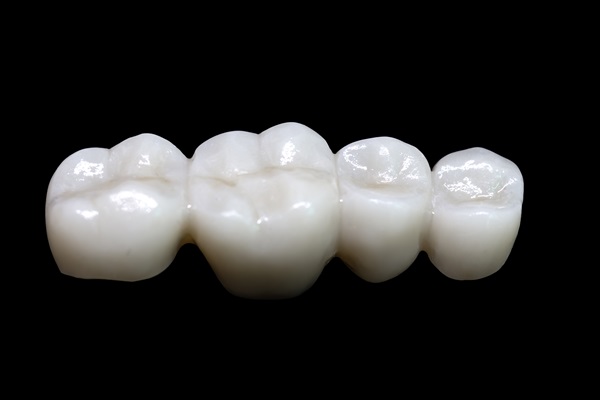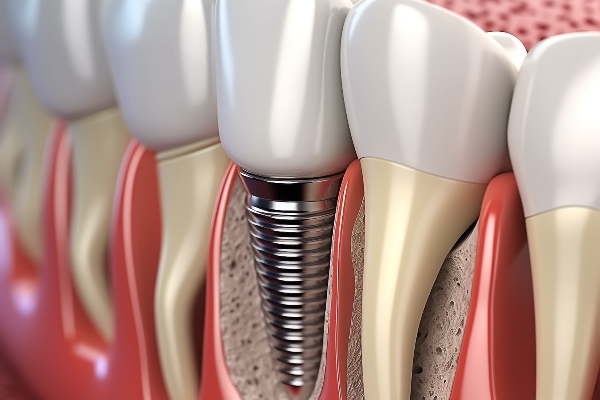 If you are missing one or more permanent teeth, dental implants may be an option for replacing them. Placing the implants requires an operation, and not everyone is a candidate for the surgery. Your dentist can discuss the criteria you must meet to be eligible. If you do not meet the criteria now, it may be possible to make some changes so that you qualify. However, in other cases, the disqualifying circumstances may be beyond your control.
If you are missing one or more permanent teeth, dental implants may be an option for replacing them. Placing the implants requires an operation, and not everyone is a candidate for the surgery. Your dentist can discuss the criteria you must meet to be eligible. If you do not meet the criteria now, it may be possible to make some changes so that you qualify. However, in other cases, the disqualifying circumstances may be beyond your control.
5 criteria you have to meet to be a candidate for dental implants
Failure of dental implants can be catastrophic. You are a good candidate for surgery if your circumstances minimize the risk of implant failure. Here are some of the criteria you need to meet.
1. Good oral health
If you have gum disease or infections in your mouth, it could complicate the surgery or lead to the failure of your oral implants. Therefore, you need to have good oral health before you can be considered a candidate for the operation. If you have an active infection, your dentist may prescribe antibiotics to address it. Once the infection is cleared up, you may be a candidate for the implant procedure. Your dentist may suggest other treatments to optimize your oral health prior to surgery, such as a routine cleaning.
2. Commitment to oral hygiene
It is not enough to have good oral health at the time of the procedure. You also have to be willing and able to maintain it through a commitment to good oral hygiene. Fortunately, dental implants do not require any special care beyond typical oral hygiene for natural teeth. If you require a major reconstruction, your dentist may require checkups at more frequent intervals than the typical six months. It is vital that you have checkups as scheduled by your dentist and maintain a home care routine of flossing and brushing once and twice daily, respectively.
3. Good overall health
Underlying medical conditions could complicate the procedure or interfere with healing. If you have a condition that could complicate your surgery, implants may be contraindicated, or it may be necessary to postpone the procedure. However, if the condition is under control, it may be possible to proceed.
4. Understanding of the risks and requirements
Any surgical procedure comes with risks. Before you commit to the procedure, the risks and benefits will be explained to you, and it is up to you whether the benefits outweigh the risks. You also need to understand that, even with an uncomplicated procedure, it takes months before the implant has fused sufficiently with the bone to support a tooth prosthesis.
5. Adequate jawbone density
For a dental implant to be successful, the jawbone has to be strong and dense enough to support it. However, following the loss of a tooth, the jawbone loses density due to calcium resorption. If the jawbone density is not sufficient, a bone graft procedure may strengthen it so it can support an implant. This increases the overall treatment time.
Conclusion
Your risk for failure of your dental implants determines whether you are a good candidate. It may be possible to improve the risks.
Request an appointment or call Midtown Dental - The Gallery of Smiles at 713-979-4127 for an appointment in our Houston office.
Recent Posts
There are many benefits to dental implants, and once healed, implants look and feel much like natural teeth. Despite these benefits, they may not be the right choice for everyone. It is important to speak with a dentist and consider the current condition of your health before going forward with the procedure.Before you can get…
Dental implants are a permanent solution for replacing missing teeth and restoring oral function. Patients who take the time to understand the implant process enjoy successful outcomes.A dental implant is a titanium post that a dentist anchors to the jawbone to replace a missing tooth root. After the implant successfully integrates with the jawbone, the…
According to the American Dental Association, dental implants are stable because the jawbone grows around them. This process is known as osseointegration, and it is essential for the success of an implant. Several elements can affect this process, and patients undergoing the dental implant procedure should understand what affects an implant fusing to the bone.…










